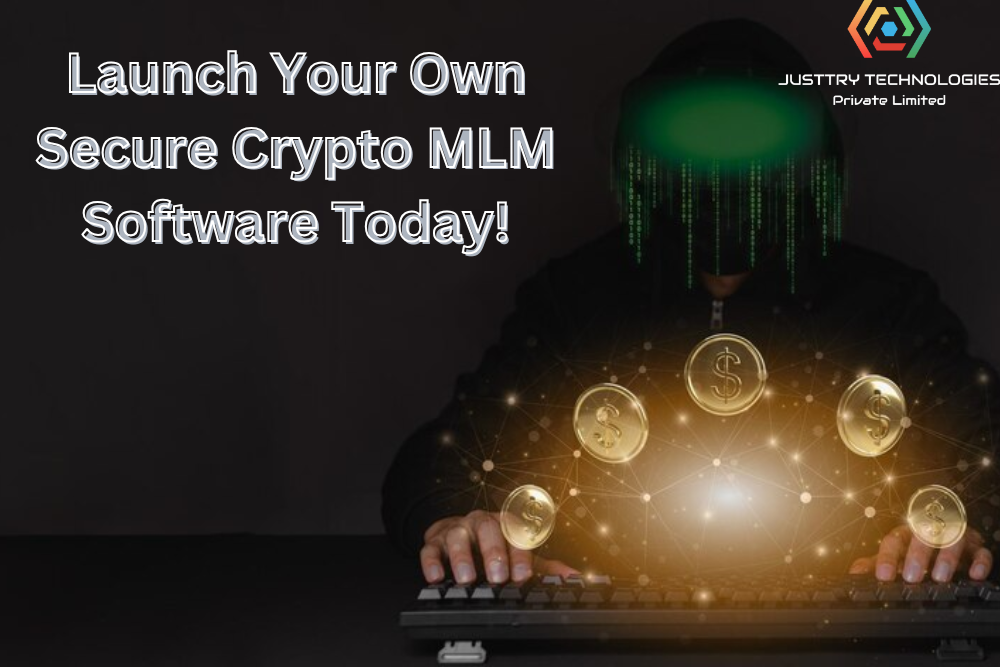Cryptocurrency MLM software combines blockchain technology with multi-level marketing to create a transparent, automated, and globally accessible platform. Developing such a platform requires a robust tech stack to ensure scalability, security, and efficiency. The right combination of tools, programming languages, and frameworks can streamline development and create a user-friendly, reliable system. In this blog, we will explore the essential tech stack needed for Crypto MLM Software Development, focusing on the technologies that can help build a secure and efficient platform.
Why the Right Tech Stack Matters for Crypto MLM Software Development
Developing cryptocurrency MLM software involves integrating blockchain technology, automation via smart contracts, and user-friendly interfaces. The tech stack defines how well the platform will perform, scale, and secure data. Key considerations include:
- Blockchain Integration: To enable secure and transparent transactions.
- Smart Contracts: For automating processes like payouts and referrals.
- User Experience: To ensure ease of use for participants.
- Scalability: To handle increasing users and transactions as the platform grows.
- Security: To protect users' data and assets from cyber threats.
Key Components of a Cryptocurrency MLM Software Tech Stack
Here’s a breakdown of the essential tech stack components:
1. Blockchain Platform
Blockchain is the backbone of a cryptocurrency MLM platform. It ensures transparency, decentralization, and secure record-keeping. The choice of blockchain depends on the platform’s requirements, such as transaction speed, scalability, and cost.
- Ethereum: Popular for its robust smart contract capabilities and developer community. Ideal for deploying decentralized MLM platforms.
- Binance Smart Chain (BSC): A cost-effective alternative to Ethereum, offering faster transactions with lower gas fees.
- Polygon (MATIC): Scalable and highly efficient, suitable for platforms requiring high transaction throughput.
- Solana: Known for its speed and low transaction costs, making it a strong choice for large-scale MLM operations.
2. Smart Contract Development
Smart contracts automate MLM processes, including payouts, referral tracking, and user registration. They ensure accuracy, transparency, and timeliness by executing predefined conditions without human intervention.
- Languages:
- Solidity: The primary language for Ethereum-based smart contracts.
- Vyper: A more secure, simplified alternative to Solidity.
- Rust: Used for Solana-based smart contracts, offering high performance.
- Tools:
- Remix IDE: An online IDE for writing and testing smart contracts.
- Truffle: A development framework for Ethereum.
- Hardhat: A flexible Ethereum development environment for testing and debugging.
3. Backend Development
The backend processes user data, handles transaction logic, and communicates with the blockchain. It must be secure, scalable, and efficient.
- Programming Languages:
- Node.js: Ideal for handling asynchronous processes and managing high traffic.
- Python: Offers robust libraries for blockchain integration and data analysis.
- Golang: Preferred for its performance and concurrency support in blockchain applications.
- Frameworks:
- Express.js (for Node.js): Lightweight and fast for building scalable applications.
- Django (for Python): Suitable for developing secure and maintainable backend systems.
4. Frontend Development
A user-friendly and intuitive interface is essential for participant engagement. The frontend must allow users to register, track their network, view earnings, and withdraw funds seamlessly.
- Technologies:
- React.js: Ideal for building dynamic and responsive user interfaces.
- Vue.js: A lightweight framework for creating highly interactive web applications.
- Angular: Best for creating enterprise-grade web applications with robust features.
- Tools:
- Bootstrap: For responsive design.
- Material-UI: Provides pre-designed components to speed up development.
5. Database
The database stores user information, transaction history, and other essential data. It must be secure, scalable, and optimized for performance.
- Options:
- MongoDB: A NoSQL database suitable for handling large volumes of unstructured data.
- PostgreSQL: A robust SQL database with strong security and scalability features.
- Redis: For caching and improving application performance.
6. Payment Gateway Integration
The platform must support payments in multiple cryptocurrencies. Integrating secure crypto wallets and payment gateways ensures seamless deposits and withdrawals.
- Crypto Wallets:
- MetaMask: A popular wallet for managing Ethereum-based tokens.
- Trust Wallet: Supports multiple blockchains, ideal for diverse user needs.
- Coinbase Wallet: Secure and user-friendly.
- Payment Gateway APIs:
- CoinPayments: Supports a wide range of cryptocurrencies.
- BitPay: Known for its security and ease of integration.
- NOWPayments: Lightweight and flexible for crypto payments.
7. Security Tools
Security is paramount for protecting user data and assets. The tech stack should include tools and protocols for safeguarding the platform.
- Encryption: Use SSL/TLS for secure data transmission.
- Multi-Signature Wallets: Enhance fund security by requiring multiple approvals for transactions.
- Two-Factor Authentication (2FA): Adds an extra layer of security to user accounts.
- Auditing Tools:
- MythX: For smart contract security audits.
- CertiK: A blockchain security service provider specializing in vulnerability detection.
8. Cloud Infrastructure
Hosting the platform on reliable cloud infrastructure ensures scalability, uptime, and smooth performance.
- Options:
- AWS: Offers robust cloud solutions with high scalability and global reach.
- Microsoft Azure: Ideal for enterprise-level applications.
- Google Cloud Platform (GCP): Known for its AI and analytics capabilities.
Why Partner with a Crypto MLM Software Development Company?
Developing cryptocurrency MLM software requires expertise in blockchain technology, smart contracts, and secure application development. Partnering with a Crypto MLM Software Development company ensures:
- Custom Solutions: Tailored to meet specific MLM compensation structures and business needs.
- Advanced Security: Implementing cutting-edge security protocols like encryption, wallet security, and regular audits.
- Regulatory Compliance: Adherence to KYC/AML requirements for global operations.
- Post-Launch Support: Maintenance, updates, and feature enhancements to keep the platform competitive.
Conclusion
Building a robust cryptocurrency MLM software requires a carefully selected tech stack that balances blockchain integration, smart contract automation, security, and user-friendliness. By using technologies like Ethereum, Solidity, React.js, and Node.js, businesses can create scalable and secure platforms that attract participants globally.
Partnering with an experienced Crypto MLM Software Development company ensures that your platform is built to handle the complexities of blockchain technology while delivering a seamless user experience. As MLM and cryptocurrency continue to evolve, having the right tech stack is essential for staying competitive in this rapidly growing market.





Comments